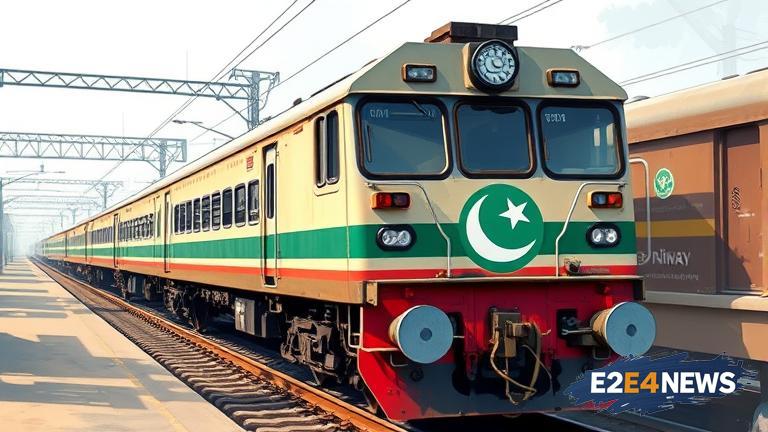In a significant move, Pakistan Railways has announced plans to privatize the commercial management of 11 trains, marking a major shift in the country’s railway sector. This decision is aimed at improving the overall efficiency and profitability of the trains, which have been facing significant losses in recent years. The private sector is expected to bring in much-needed investment and expertise to revamp the trains and make them more attractive to passengers. The 11 trains that will be handed over to the private sector include some of the most popular routes in the country, such as the Lahore-Karachi and Lahore-Peshawar lines. The private companies will be responsible for managing the commercial aspects of the trains, including ticketing, catering, and advertising. Pakistan Railways will still be responsible for the operational and maintenance aspects of the trains. The privatization move is expected to create new job opportunities and stimulate economic growth in the country. The private sector is expected to invest heavily in modernizing the trains and improving the overall passenger experience. This move is also expected to increase competition in the railway sector, leading to better services and lower prices for passengers. The Pakistan Railways has already started the process of inviting bids from private companies and is expected to finalize the contracts soon. The privatization of train management is part of the government’s broader plan to reform the railway sector and make it more efficient and profitable. The move is also expected to help reduce the financial burden on the government, which has been subsidizing the railway sector for years. The private sector is expected to bring in new technologies and innovative ideas to improve the railway sector, which has been struggling to keep up with the changing times. The Pakistan Railways has assured that the privatization move will not lead to any job losses and that the private companies will be required to absorb the existing staff. The move has been welcomed by the business community, which sees it as a positive step towards improving the country’s infrastructure and economy. However, some critics have raised concerns about the potential impact on the poor and marginalized communities, who may not be able to afford the increased prices. The government has assured that it will take steps to ensure that the privatization move does not harm the interests of the common man.
